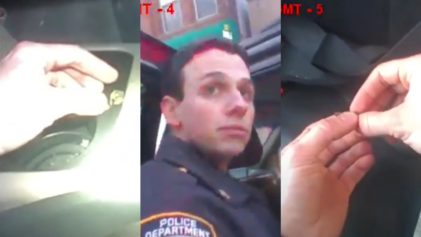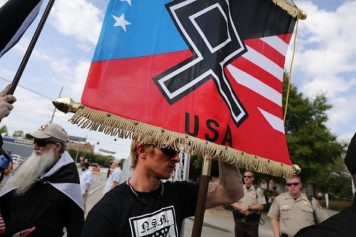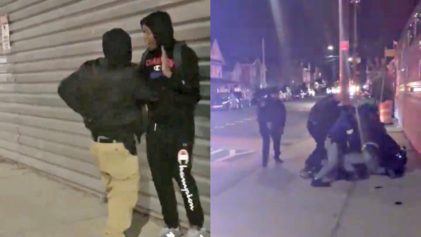A paid informant for the New York Police Department’s intelligence unit says he was under orders to “bait” Muslims into saying incriminating things as he lived a double life of snapping pictures inside mosques and collecting the names of innocent people attending study groups on Islam.
In an interview with the Associated Press, Shamiur Rahman, a 19-year-old American of Bengali descent who has now denounced his work as an informant, said police told him to embrace a strategy called “create and capture.” He said it involved creating a conversation about jihad or terrorism, then capturing the response to send to the NYPD. For his work, he earned as much as $1,000 a month and goodwill from the police after a string of minor marijuana arrests.
“We need you to pretend to be one of them,” Rahman recalled the police telling him. “It’s street theater.”
Rahman, who said he plans to move to the Caribbean, said he now believes his work as an informant against Muslims in New York was “detrimental to the Constitution.” After he disclosed to friends details about his work for the police – and after he told the police that he had been contacted by the AP – he stopped receiving text messages from his NYPD handler, “Steve,” and his handler’s NYPD phone number was disconnected.
Rahman’s account shows how the NYPD unleashed informants on Muslim neighborhoods, often without specific targets or criminal leads. Much of what Rahman said represents a tactic the NYPD has denied using.
The AP corroborated Rahman’s account through arrest records and weeks of text messages between Rahman and his police handler. The AP also reviewed the photos Rahman sent to police. Friends confirmed Rahman was at certain events when he said he was there, and former NYPD officials, while not personally familiar with Rahman, said the tactics he described were used by informants.
Informants like Rahman are a central component of the NYPD’s wide-ranging programs to monitor life in Muslim neighborhoods since the Sept. 11, 2001 terrorist attacks even when there’s no evidence they committed a crime.
The programs were built with unprecedented help from the CIA.
Police recruited Rahman in late January, after his third arrest on misdemeanor drug charges, which Rahman believed would lead to serious legal consequences. An NYPD plainclothes officer approached him in a Queens jail and asked whether he wanted to turn his life around.Top of Form
The next month, Rahman said, he was on the NYPD’s payroll.
NYPD spokesman Paul Browne did not immediately return a message seeking comment about Tuesday. He has denied widespread NYPD spying, saying police only follow leads.
Rahman said he thought he was doing important work protecting New York City and considered himself a hero.
One of his earliest assignments was to spy on a lecture at the Muslim Student Association at John Jay College in Manhattan. The speaker was Ali Abdul Karim, the head of security at the Masjid At-Taqwa mosque in Brooklyn. The NYPD had been concerned about Karim for years and already had infiltrated the mosque, according to NYPD documents obtained by the AP.
Rahman also was instructed to monitor the student group itself, though he wasn’t told to target anyone specifically. His NYPD handler, Steve, told him to take pictures of people at the events, determine who belonged to the student association and identify its leadership.
On the NYPD’s instructions, Rahman attended more events at John Jay, including when Siraj Wahhaj spoke in May. Wahhaj, 62, is a prominent but controversial New York imam who has attracted the attention of authorities for years. Prosecutors included his name on a 3 1/2-page list of people they said “may be alleged as co-conspirators” in the 1993 World Trade Center bombing, though he was never charged.
Rahman, who was born in Queens, said he never witnessed any criminal activity or saw anybody do anything wrong.
Rahman said he eventually tired of spying on his friends, noting that at times they delivered food to needy Muslim families. He took $200 more from the NYPD and told them he was done as an informant. He said the NYPD offered him more money, which he declined. He told friends on Facebook in early October that he had been a police spy but had quit.
“I was an informant for the NYPD, for a little while, to investigate terrorism,” he wrote on Oct. 2. He said he no longer thought it was right. Perhaps he had been hunting terrorists, he said, “but I doubt it.”


